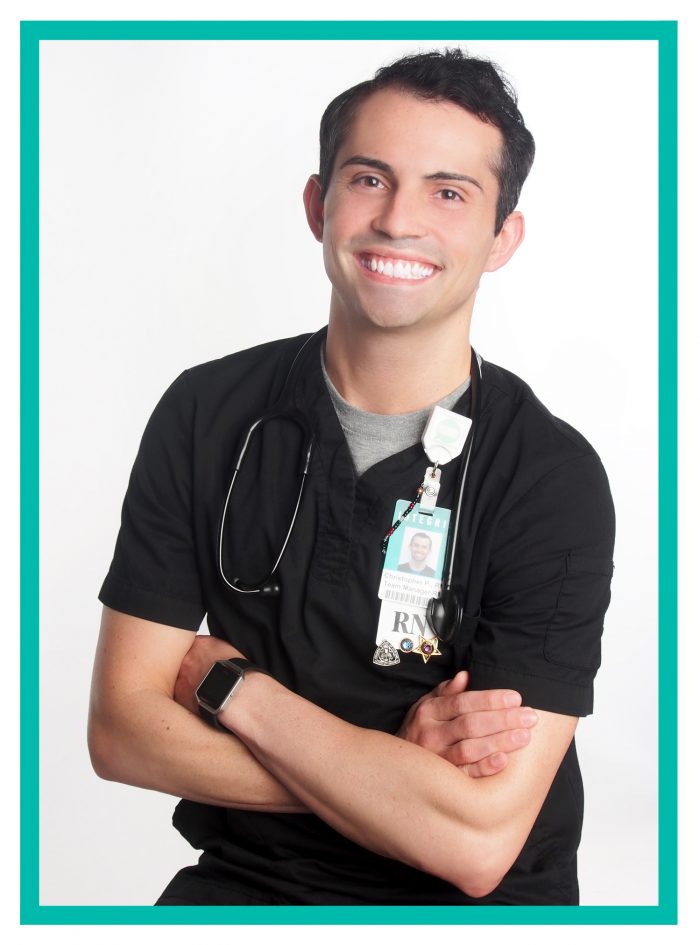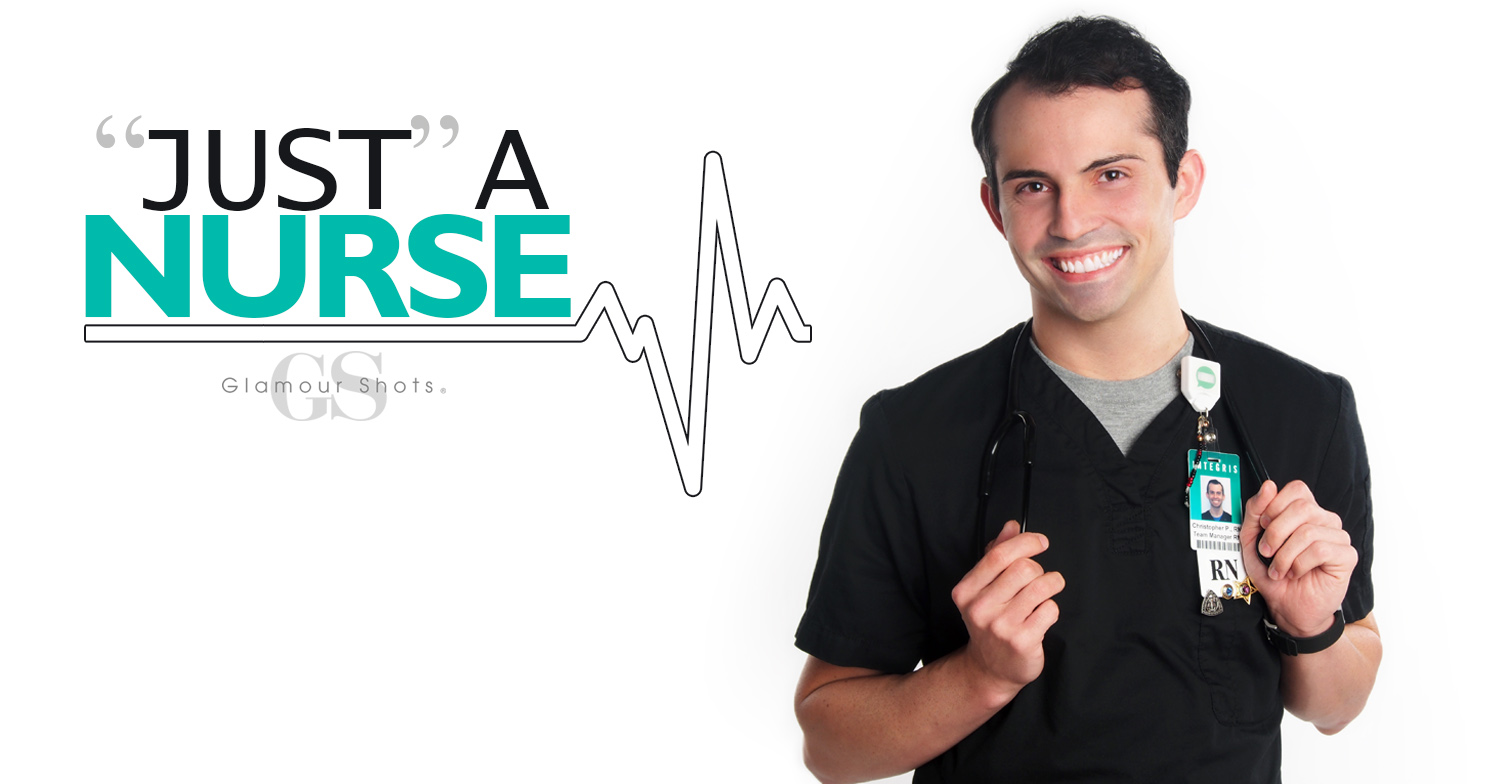Nurses are not as hardworking, knowledgable, and skilled as physicians and/or surgeons. They cannot order, perform, and understand diagnostic tests. They cannot prescribe medications or operate on patients. They’re not capable of identifying and treating your injuries or illnesses. Nurses are just nurses. Why would you ever want to become a nurse when you can become a doctor? Right?…

Nurses are the heart and lifeline of healthcare, and critical to the medical community. We absolutely love them! No matter how much they have to endure, nurses continue to be the first line of defense between patients and whatever brings them in to the hospital. These expert medical personnel cannot be thanked enough!
Chris, a charge nurse at Integris Southwest in Oklahoma City, was kind enough to talk to us about the life nurses lead, as well as the challenges they have to face and overcome everyday.
How Chris got in to nursing:
“Initially it was an accident. As I started preparing for a career, I remembered when my brother was sick and how much the nurses cared for him. They probably made such an impact on me because they were around so much. Nurses were the ones keeping our family calm and being mediators between us and the doctors. They carried out their duties and made us feel cared for. Physicians do a lot, but the bed-side type of care had more of an effect on me. It just meant a lot. Plus, I like having the skills, hearing the patients’ stories, and knowing that I’m a part of that.”
The first word that comes to mind when he thinks of the nursing profession:
Chris: “Patience.”
GlamourShots: “Patients?”
Chris: “When you think of nursing, you think of healing, healing, healing… A healed patient is just the end result; it can take a lot of hard work and time to get there. That means patience!”
GlamourShots: “Patients?”
Chris: “No.
Plus, you don’t always get to see the end result that you’re looking for. Many times nurses provide the medicine and treatment to patients, who then go and recover at home. It can be a while before you find out how they’re doing. Often, just understanding the patient’s situation can take time. Nurses have to step back and really try to understand where a patient is coming from.”

How the job can weigh on him:
“Working with such dire situations, so often… it starts feeling like an everyday thing. As you get used to it, you start treating the job as a process or routine. I always have to remind myself that to these patients and their families, this is not an everyday thing. It’s not normal and they’re scared.
There are two types of nurses. Both are great, but they have to handle the job stress in different ways. Some have to try to feel detached from the job and with the families, not because they don’t care, but because they are so emotional. That’s just how they have to deal with it. Other nurses have no problem crying in front of the patients and families. I think I fall somewhere in between most of time. Depending on the situation and what’s appropriate, I may be one way or the other.
The knowledge that comes with the profession can also be really scary sometimes. If one of my loved ones has to go to the hospital, I know the possibilities… the potential outcomes and scenarios. The knowledge makes it stressful.”
When I asked, “If I came in to your hospital with a compound fracture, what would you do?”:
“Nothing, because that’s not the floor I work on.”
How he handles a “code”:
“When a code blue is called, it can be extremely stressful. Luckily, during high stress situations, I’m a systematic thinker. I’m conditioned to take certain steps with a code blue. I make sure that every job is being done. I pull as many people as I can, make sure that every job is covered, and then whoever doesn’t have a job needs to leave the room.
A code blue always comes down to a stopped heart. So everything that needs to be done revolves around that: getting the heart pumping with CPR and, in certain situations, minimizing blood loss. You do have to adapt to little things all the time, though.”
His advice to the aspiring nurse:
“I feel like it’s a noble thing to do, but they have to be okay with the process of becoming a nurse. They need to know that it’s not always glamorous! Life is precious and this job can weigh on you heavily. If that doesn’t stop you, being a nurse is very fulfilling.”
His most memorable moment as a nurse:
“I have a lot of crazy stories… many of which I probably shouldn’t mention!
I never really get to know many of my patients because I work in an acute care facility, and they may be in my care for only a few days. It can really get to me. However, occasionally, we’ll get some patients that don’t have much family or any place to go, so they’ll stay with us for a long time. It can be really nice getting to spend time with these patients and making sure they feel cared for and safe.
One such patient asked me why I didn’t go to medical school and become a doctor. Physicians do great things and surgeons do great things… but caring for those patients… that is the great thing that I get to do. He later told me that I was one of the best people he’s ever met! People appreciating your care, makes everything feel worth it. You’d be surprised how infrequently that happens. For all patients and families, being at the hospital is a negative experience, and being able to turn that around for them can mean a lot.”
May 6th marks the beginning of Nurse Appreciation Week and ends (but never really ends) May 12th. For more information on Nurse Appreciation Week, visit the American Nurses Association website. Oh, and make sure you thank a nurse… They could be saving your life one day!


